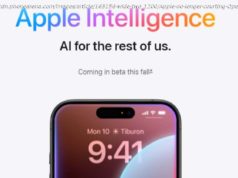Web3 promises to bring blockchain technology to the internet, opening the door to digital ownership. But not everyone is convinced.
Supporters of this new paradigm claim that it will enable digital ownership over content and art — even bringing an end to Big Tech companies like Amazon and Facebook. Meanwhile, you’ll find no shortage of skeptics and critics that argue the system is fundamentally flawed and threatens to destroy the freedom and openness of the internet. Existing Web 2.0 platforms are almost always owned and controlled by a singular private entity — think companies like Google, Amazon, or Facebook. While we can interact with these platforms as customers or users, they have the final say in terms of the platform’s rules and who can participate. More importantly, you’re often the product — either through advertising or data collection. A Web3 application also stores its data on a decentralized blockchain instead of databases on a handful of servers. This approach offers users greater transparency and insight into how the platform works, while also eliminating the single points of failure that Google and Amazon servers suffer from. Imagine a bank that never experiences downtime, or a social media platform that an oppressive government cannot censor. Web3’s decentralization promises resistance to censorship, zero downtime, and increased transparency. Indeed, Web3 is all about changes under the hood — enabling data ownership and monetization without middlemen. If you don’t need decentralization, though, Web3 doesn’t bring anything new to the table. This also means that many Web 2.0 services will continue to exist in parallel, at least for the foreseeable future. What is ownership and how is it related to cryptocurrency? A lot of Web3’s utility hinges on its so-called ownership aspect. The idea is rather simple: developers deploy their projects on decentralized blockchain networks like Ethereum. Given this heritage, it’s not surprising that these platforms are also intrinsically linked to the cryptocurrency market.






